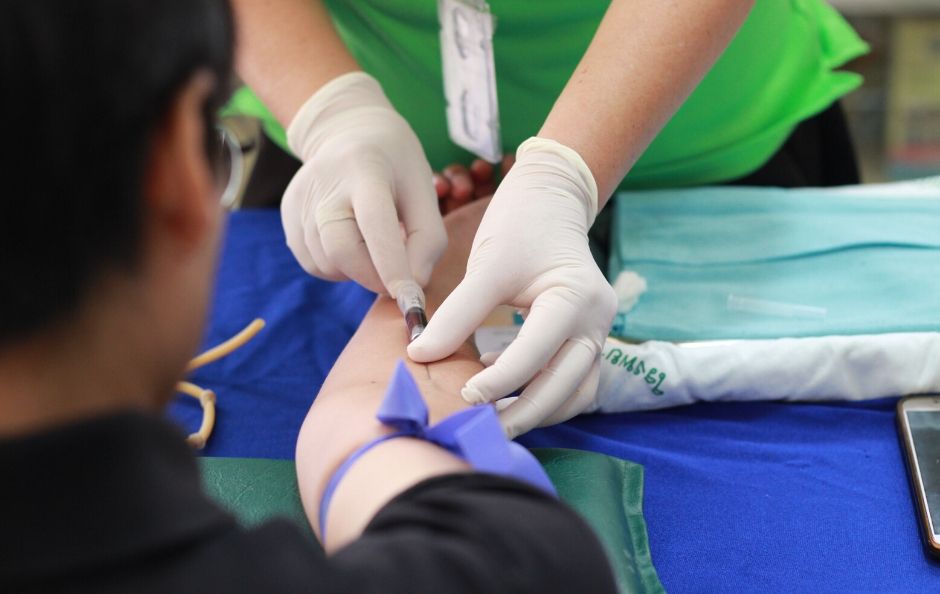Did you know that there are over 25 conditions that commonly affect the skin? Did you know that the most common of these conditions is caused by an imbalance in our skin’s natural bacteria? Did you know that frequent, gentle washing is the first step to keeping your skin healthy and preventing these conditions from occurring again?
These may all sound like common knowledge, but they are also key facts about preventive healthcare. Preventive healthcare is a set of actions taken to prevent diseases before they can manifest. This article will explore what preventive healthcare is, explain why it’s important, and provide some useful tips on how you can incorporate it into your daily life.

What Is Preventive Healthcare?
Healthcare practitioners attempt to treat the root cause of a person’s health problems. On the contrary, preventive healthcare is focused on the prevention of disease. Why is this even important? Simply, bacteria and other pathogens can cause skin conditions such as pimples and rashes.
These conditions are not fun to deal with and can be even more difficult when you have acne. If left untreated, acne can cause permanent damage to the skin, which can lead to further complications down the line. Preventive healthcare means taking steps to keep your skin healthy so that these problems don’t occur in the first place.
Why is Preventive Healthcare Important?
There are several reasons to practice preventive healthcare. Preventive healthcare prevents the development of skin conditions. People who regularly practice preventive healthcare are less likely to develop conditions such as eczema, psoriasis, and rosacea. Healthier skin means a more confident you. Preventive healthcare also allows you to enjoy a longer, more comfortable life.
Diseases and medical conditions such as cancer, heart disease, and diabetes are some of the leading causes of death in the world. By keeping your skin healthy, you decrease your risk of developing these diseases. Finally, preventive healthcare allows you to maintain a youthful appearance for longer. Healthy skin can prevent wrinkles and the ageing process. Healthy skin also allows you to stay active, confident and socially engaged for longer.
How to Incorporate Preventive Healthcare Into Your Life
There are several steps you can take to incorporate preventive healthcare into your life. Start by washing your face once a day with a gentle, non-oil cleanser. Look for products that are dermatologically tested and free of harmful chemicals such as sulfates, parabens, and phthalates. If you’re prone to acne, you may also want to consider taking dietary measures.
Try cutting refined sugar and dairy products from your diet and drinking a daily glass of water instead. Healthy skin begins with a healthy diet, so you should aim to cut out refined sugar and dairy products from your diet. Water is one of the best cleansers, so drinking extra water while cutting refined sugar and dairy products from your diet will help keep your skin healthy and clear.
Tips for Improving Your Preventive Healthcare Practices
- Look for reviews online before purchasing skincare products. Many popular products are heavily marketed but are ineffective or even harmful. Look for reviews from other users to help you find the best products for your needs.
- Keep track Cleaning your face once a day with a gentle cleanser is crucial for maintaining healthy skin. However, you choose to do it, find a cleanser that is gentle on your skin. Avoid products that contain sulfates, parabens, or phthalates.
- Shape up for summer Summer is important for many reasons, but one of the most important is that it is the time of year when skin is at its most susceptible. You can help prevent skin damage during this time by consuming water, washing your face with a gentle cleanser, and applying sunscreen daily.
- Eat for your skin Another important reason for eating well is that it has been found to have a dramatic effect on the appearance of the skin. A healthy diet can help to reduce wrinkles and improve the appearance of the skin. Try to consume foods high in nutrients such as iron and vitamins A, C, and E.
- Take the stairs Walking and exercise are great for your overall health, but they can also help to improve the appearance of your skin. Try to walk or exercise outside instead of in a gym, as this will help to improve the appearance of your skin. Take the stairs instead of using an elevator, as this will help to improve the appearance of your skin.
- Protect your skin The sun’s damaging rays are strong enough to cause damage even on cloudy days. Instead of risking damage, protect your skin with sunscreen every day.
Conclusion
Healthy skin is an important part of looking and feeling good. Daily washing with a mild, non-oil cleanser and drinking a daily glass of water can help keep your skin healthy and prevent common skin conditions. Preventive care can have a dramatic effect on your skin, so make sure you get it. With these tips, you’ll be well on your way to better, healthier skin.
There is no doubt that some of the most basic preventive healthcare measures are not being followed. The skin is the body’s largest organ, and as such, it is important to take care of it. Regular washing with soap should be one of the first steps taken to care for your skin. You should also be sure to moisturize your skin and wear sunscreen when outdoors.